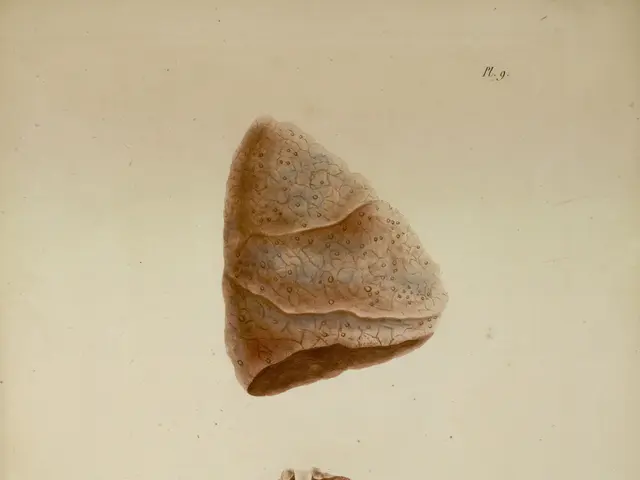Study Reveals APOL1 Gene's Role in Chronic Kidney Disease in West Africans
A groundbreaking study has shed light on the mechanism behind chronic kidney disease (CKD) in individuals with West African ancestry. The research, led by Jeffrey B. Kopp, reveals that mutations in the apolipoprotein L1 (APOL1) gene, specifically the G1 and G2 variants, cause severe mitochondrial impairment in kidney cells under inflammatory stress.
CKD, affecting over 700 million people worldwide, has various causes including genetics. The APOL1 gene, when mutated, increases the risk of CKD, but the underlying process was unclear until now.
Researchers from the University of Leiden developed kidney organoids using induced pluripotent stem cells (iPSCs) from patients with homozygous G1 and G2 mutations. These organoids allowed them to study APOL1-mediated kidney disease (AMKD) in detail. Under inflammatory stress, podocytes with APOL1 mutations exhibited severe mitochondrial impairment and reduced energy production capacity. This impairment is a central driver of the metabolic reprogramming observed in APOL1 risk variant podocytopathy.
The study provides a platform for testing therapeutic interventions aimed at restoring mitochondrial function or preventing inflammatory stress responses in AMKD. Further research is needed to translate these findings into clinical treatments, potentially benefiting the millions affected by CKD worldwide.
Read also:
- FDA's Generic Mifepristone Approval Sparks Pro-Life Concerns Over Safety and States' Rights
- Understanding Child Development: Causes and Signs of Delays
- Pope Francis' New Book 'Let Us Dream' Offers Unity and Hope for Post-Covid World
- Stephanie Estremera Gonzalez: From Medical Assistant to Residential Manager at The Point/Arc








